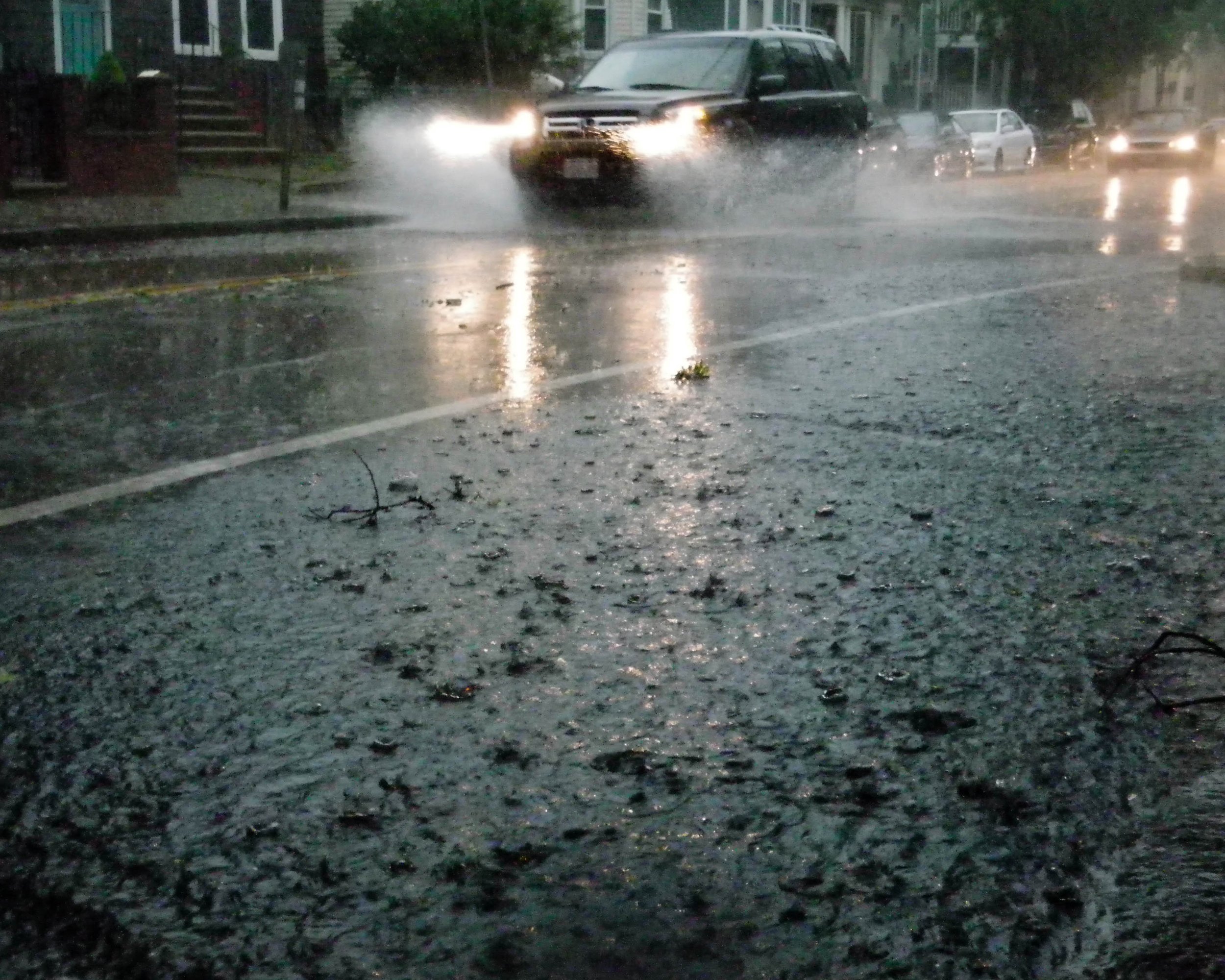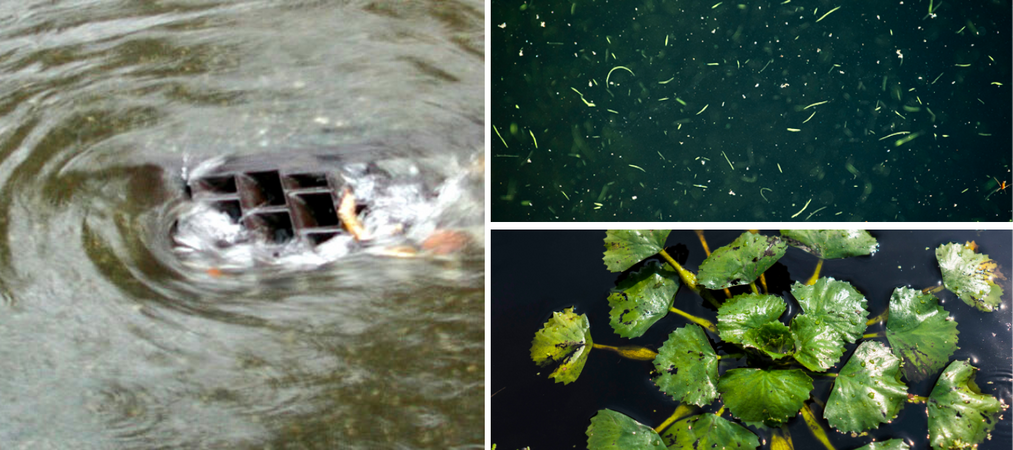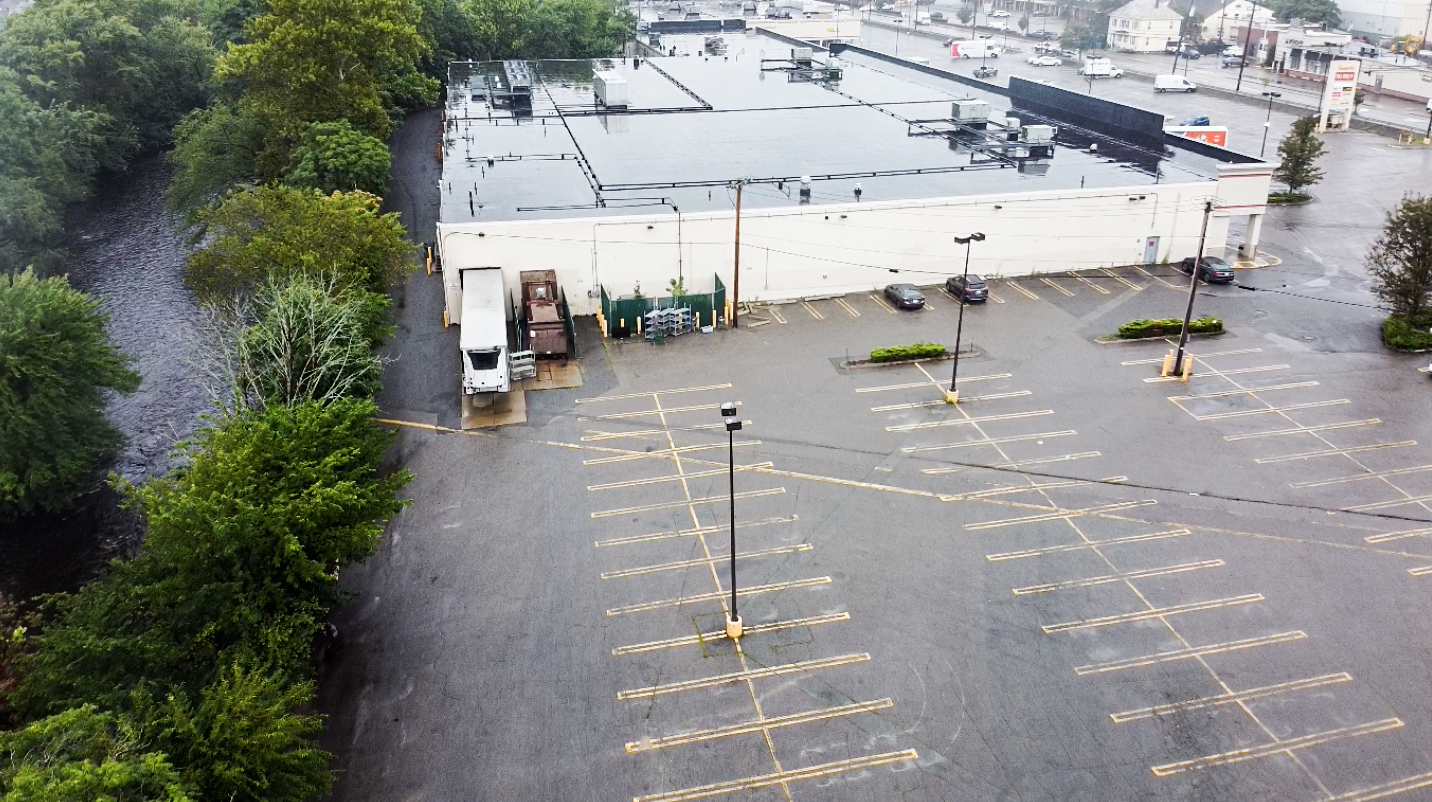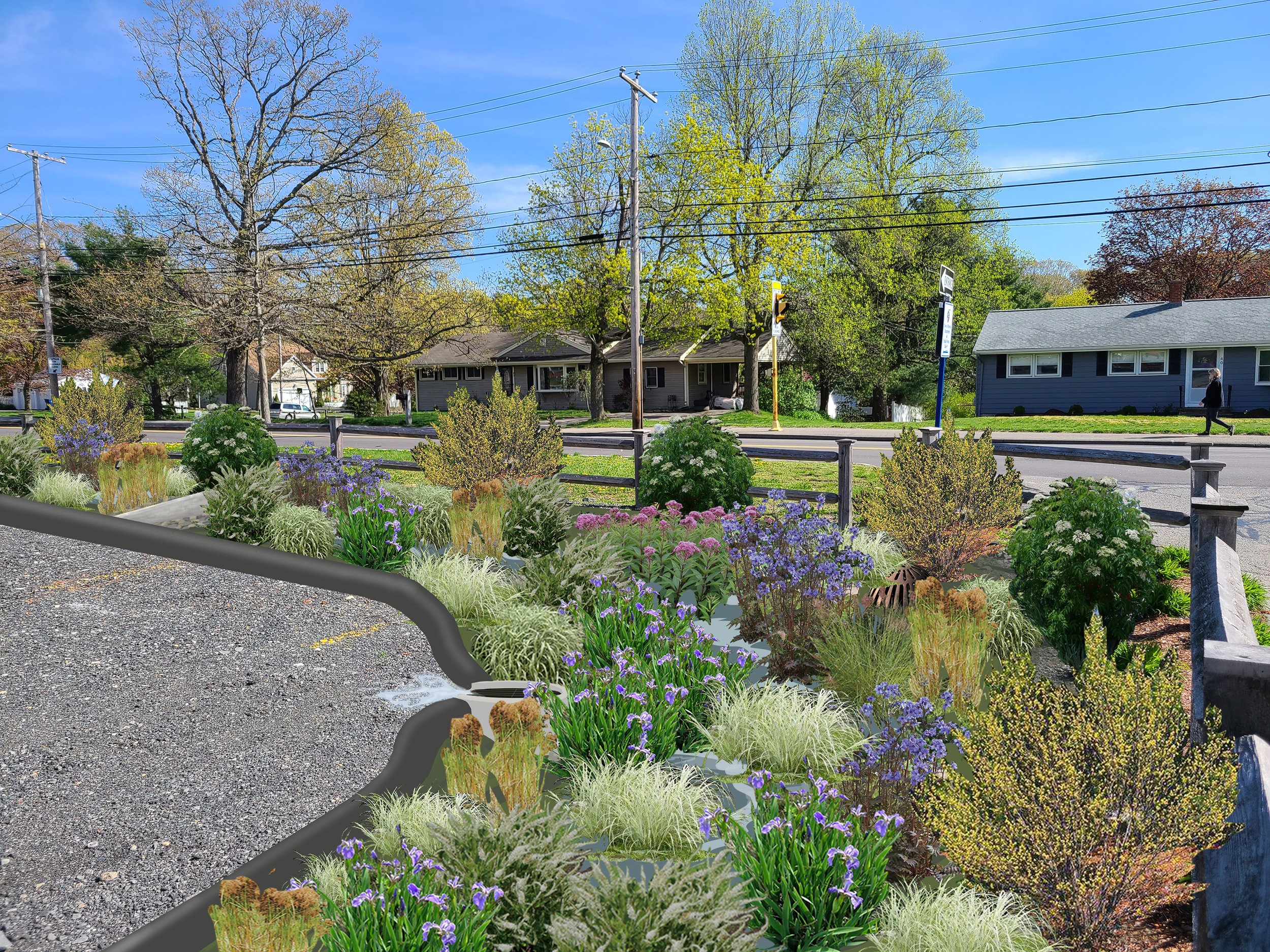
CURBING STORMWATER POLLUTION
Stronger Stormwater Regulations.
Stormwater pollution is the greatest threat to a clean Charles River.
In our highly urbanized watershed, with up to 80% impervious cover in some areas, every rainstorm washes all the gasoline, trash, oil, pet waste, and more from our roads, parking lots, and roofs straight into the Charles, untreated.
Polluted stormwater runoff also degrades the river ecosystem with excess nutrients, which cause rampant invasive species growth, toxic cyanobacteria blooms, and fish kills, making our rivers uninhabitable for humans, plants, and wildlife alike.
What we are doing about it:
We’re keeping stormwater pollution out of our river in the first place by advocating for strong stormwater regulations, helping cities and towns meet reduction goals, and bringing nature back into the built environment with green infrastructure solutions.
Reducing Stormwater Pollution in Cities & Towns
Under the Massachusetts Municipal Stormwater (MS4) permit, over the next twenty years, cities and towns in our watershed must reduce phosphorus discharges into the Charles in accordance with what CRWA’s studies have shown is necessary for a truly healthy river.
When industry and municipal groups challenged the permit in court, we intervened in the appeal with Conservation Law Foundation to prevent the permit from being weakened and reached a settlement in late 2019. We continue to advocate for implementation of this program and necessary reductions in stormwater pollution.
Regulating Large Stormwater Polluters with the Clean Water Act
After years of advocacy from CRWA and Conservation Law Foundation, EPA will now require certain large private property owners to do their share and manage their own stormwater, reducing pollution in Boston's three urban rivers; the Charles, Mystic, and Neponset.
Large impervious properties, including big box stores and malls, only make up 20% of our watershed, yet are the source of up to 50% of the stormwater pollution according to EPA. Now, under residual designation authority (RDA), these large polluters will be required to reduce stormwater pollution and obtain permits to discharge stormwater from their properties.
However, EPA has not yet issued the permits, which is why CLF and CRWA filed a lawsuit against EPA on November 2, 2022 for failing to take necessary actions to protect rivers from polluted runoff.
Green Infrastructure Solutions
We’re bringing nature back–– designing, building, and maintaining green infrastructure across our watershed to keep stormwater pollution out of our river.
Green infrastructure uses nature-based solutions like rain gardens, bioswales, infiltration chambers, tree pits, permeable pavers, and more that collect stormwater runoff, filter out pollution, recharge the groundwater, and more.
Helping Cities & Towns Reduce Phosphorus:
In 2022, we hosted a workshop series to help municipal leaders create plans for reducing phosphorus pollution to meet the Massachusetts Municipal Stormwater (MS4) permit over the coming years with funding from MA Department of Environmental Protection (DEP) and experts from EPA and engineering firm Brown & Caldwell.
-
This guided workshop helps Charles River Watershed and Lake and Pond communities understand how to calculate or recalculate their phosphorus baseline loads and discuss the process of updating baseline phosphorus calculations to present-day conditions. This workshop covers the potential impact of the Residual Designation Authority (RDA) on required reductions for Charles River watershed communities along with a methodology for incorporating them into a community’s planning efforts. This workshop also discusses the credit system for non-structural best management practices (BMPs).
The Team shared resources, including the Methods used in Neponset River Watershed Association Nutrient Source Identification Report to calculate phosphorus loading and Data to use for Baseline P-Loads and BMP Credit Calculations.
-
Most communities will struggle to achieve their required reductions on municipal land alone. Workshop #2 discusses how structural best management practices (BMPs) installed and maintained on private property have the potential to be a major contributor to phosphorus reduction requirements. Private BMPs are typically installed and maintained at little to no cost to the municipality and therefore have the potential to be low-cost credits for a municipality with proper procedures and data collection processes in place.
VIDEO | SLIDES
-
One of the biggest deciding factors for selecting, prioritizing, and implementing structural and non-structural best management practices on public property is understanding associated costs and benefits. Workshop #3 discusses local data trends collected from local Charles River watershed communities. With this locally submitted data, Workshop #3 compares the phosphorus removal rate and costs of installation.
-
CRWA facilitated a Question & Answer session with EPA, MassDEP, and other technical experts to answer the Permittees’ phosphorus control planning questions. Some of the topics discussed what to expect in future permits and gave advice for specific municipality needs around non-structural controls, operation and maintenance, credits for privately owned BMPs, disconnection of impervious coverage, sewer separation in combined sewer communities, and challenges of incorrect GIS mapping information, among others.
VIDEO
-
CRWA partnered with Kleinfelder, under an FY21 Municipal Assistance Grant from the Massachusetts Department of Environmental Protection (MassDEP), to support permittees regulated under the U.S. Environmental Protection Agency’s (EPA) municipal separate storm sewer system permit (MS4 Permit) in addressing phosphorus reduction requirements in the Charles River watershed and various lakes and ponds throughout Massachusetts. The following templates were developed:
Charles River Watershed PCP Template
Phosphorus Control Plan Template (Complete, PDF)
Phosphorus Control Plan Template (Word)
Charles River Watershed PCP Template Reference Appendices (companion documents for template)
R.1 PCP Approach Guidance (PDF)
R.2 Worksheets for Calculation Support (PDF)
R.2 Worksheets for Calculation Support (Word)
R.3 Funding Source Assessment: Overview and Guidance (PDF)
R.5 Guidance Memorandum on Location Screening and Prioritization for Structural Controls (PDF)
R.6 Implementation Schedule Spreadsheet (Excel)
R.7 Cost-Benefit Resource Kit (PDF)
Additional Resources for Charles River
Baseline Phosphorus Loads Spreadsheet (Excel)
Lakes and Ponds PCP Template
L&PPCP Template (Complete, PDF)
Lakes and Ponds PCP Template Reference Appendices (companion documents for template)
R.1 PCP Approach Guidance (PDF)
R.1 PCP Approach Guidance (Word)
R.2 Worksheets for Calculation Support (PDF)
R.2 Worksheets for Calculation Support (Word)
R.3 Funding Source Assessment: Overview and Guidance (PDF)
R.5 Implementation Schedule Spreadsheet (Excel)
Additional Resources for Lakes and Ponds
Opportunities for Regional Collaboration
Memorandum regarding Opportunities for Regional Collaboration - Phosphorus Reduction
-
In 2023, we partnered with the University of Vermont (UVM) Spatial Analysis Laboratory to develop high-resolution updated land use land cover (LULC) data and impervious cover (IC) data for the entire Charles River watershed.
This critical data will support communities in effectively assessing current phosphorus loads due to land use and implementing Phosphorus Control Plans, which are mandated by the MS4 General Permit.
Thank you to the Massachusetts Department of Environmental Protection (MassDEP) for funding this work.















